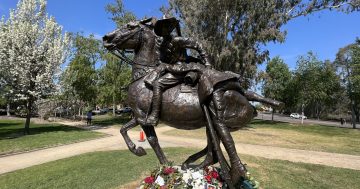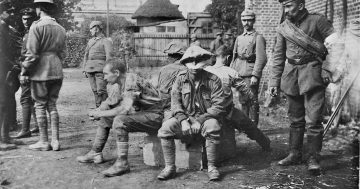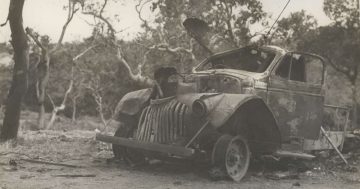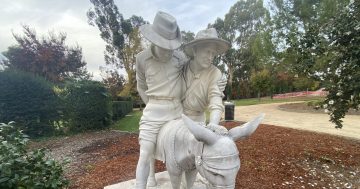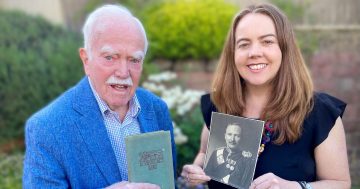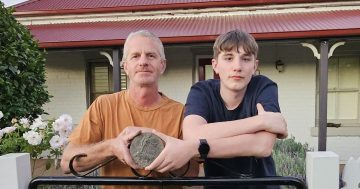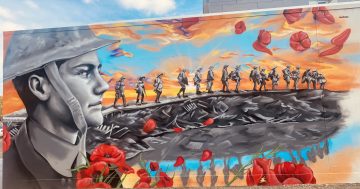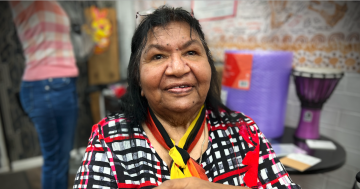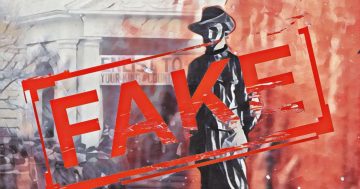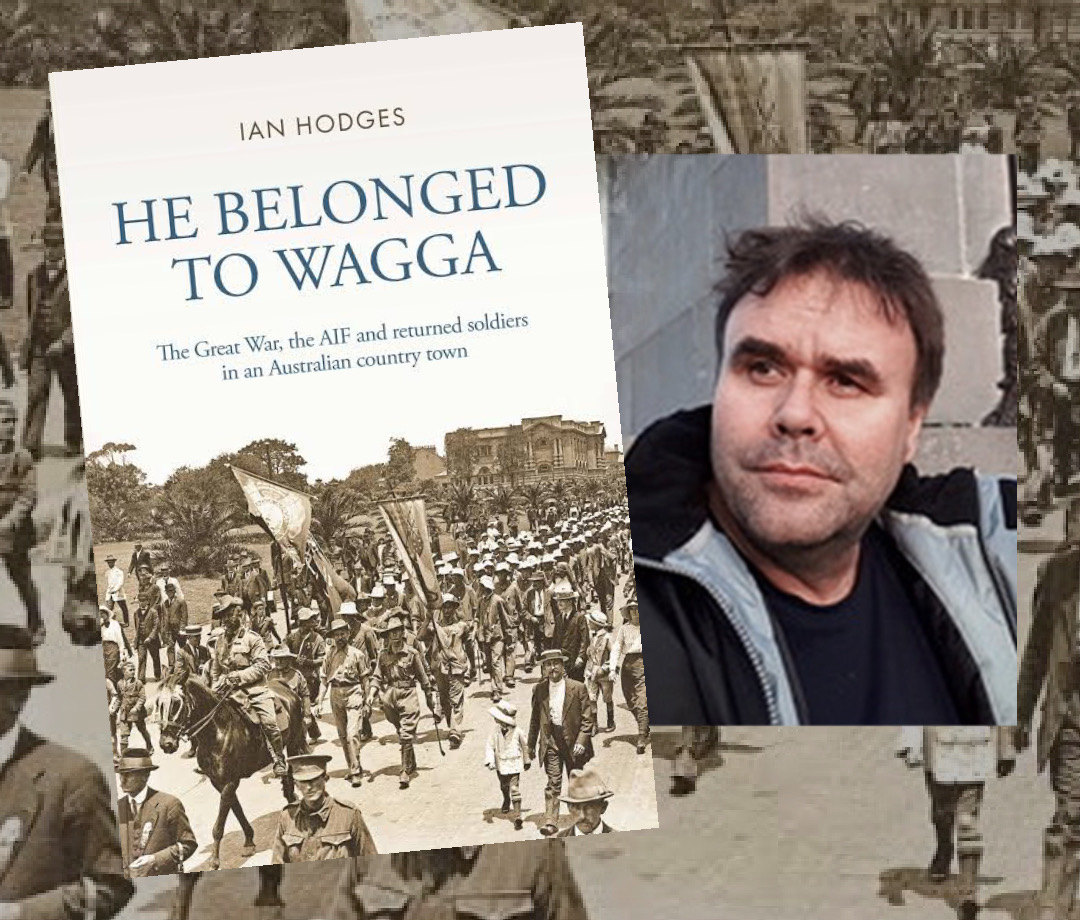
Ian Hodges will launch his book on Remembrance Day. Photos: Supplied.
Historian and first-time author Ian Hodges wants to balance the scales when it comes to perceptions about returned servicemen who fought in the ‘Great War’.
“There’s this overarching narrative that all the people who came back from the First World War were sort of human wrecks and social misfits living with the scars of their mental or physical wounds,” he explained.
“I wanted to find people for whom that wasn’t the case and who came back from the war and lived comfortable, or what you’d call ‘normal’, lives.”
Ian will launch his book, He Belonged to Wagga, at the Museum of the Riverina today as the nation pauses for Remembrance Day (Friday, 11 November).
It follows the lives of the generation who lived in Wagga from the First World War to the Great Depression of the 1930s.
“In the book, I’m not saying the war didn’t live in the veterans’ memories, but most were able to withstand all that and come back to lives in the community in business and politics and ended up doing quite well,” Ian said.
Ian grew up in Sydney, settled in Canberra and has worked at the Australian War Memorial and the Department of Veterans’ Affairs for 25 years.
When he began researching the lives of returned soldiers for his PhD, his wife’s hometown of Wagga proved to be the perfect case study for both its proximity to the ACT and its wealth of historical records.
“Wagga’s got a really rich historical community,” he said.
“It’s got a couple of historical societies, it’s got the Museum of the Riverina and it’s got this amazing regional archive at Charles Sturt University.
“I was able to drive down there on a Monday morning and be there when the archives opened.”
The book takes a broad approach to understanding this first generation of diggers, from growing up and going to school, to enlisting, the struggle on the home front and how returned soldiers reintegrated as soldier settlers, workers and community members through the post-war decades.
“The trouble is that the historical records favour the people who came back and needed help from the repatriation department, so you get the best and the most detailed stories about the human wreckage, but I wanted to show that there was more to it than that,” he says.
“Someone like Harry Gissing is a really interesting story about a man who came back from the war and devoted his life to community service and his own business.”
He Belonged to Wagga also captures some of the remarkable stories from the home front, including Wagga’s “Armistice Day fiasco” when the town’s competing bands duelled over the right to perform at the historic occasion.
“There were the brass band and the citizen band, and the brass band had been more associated with the Australian Imperial Force throughout the war,” Ian explained.
“Just before the war ended the War Service Committee met and they had been deciding which of the two bands should lead the march.”
With an even split on the vote, mayor Edward Collins pulled a name from a hat and gave the nod to the citizen’s band – a move that did not go down well with the public or veterans.
As spontaneous celebrations erupted and the War Services Committee attempted to stage an official parade, they were abandoned by the public who followed the rival brass band in the opposite direction.
“The crowd just voted with their feet and with their voices and put an end to the formal commemorations,” Ian said.
He hopes that the stories in the book help to create a full picture of the lives of those caught up in the war and breadth of their experience and contribution.
“I hope that when people in Wagga think about the First World War that they see the likes of Allan Bruce and Harry Gissing,” he said.
“Allan Bruce came back missing a couple of fingers and a leg and lost two of his brothers in the war.
“And there are plenty of stories like that in Wagga, but there are also stories like Harry who came back from the war and went on to lead very successful public and private lives.”
Ian will launch his book at a free event at 2:30 pm today (Friday) in the Council Meeting Room.



